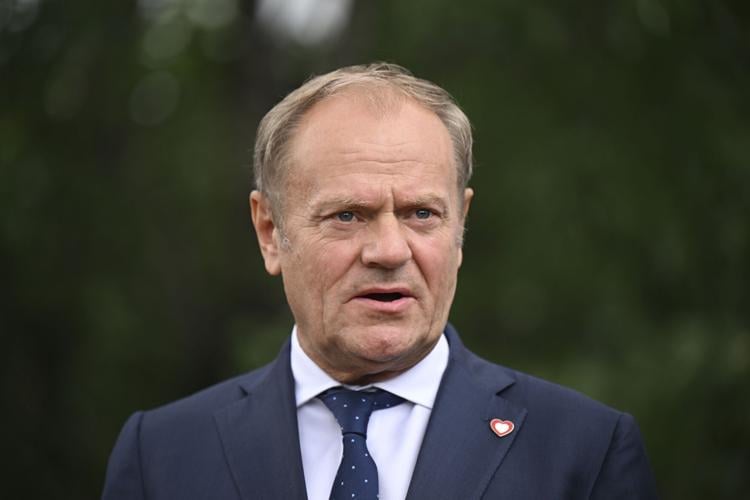WARSAW, Poland (AP) — Polish Prime Minister Donald Tusk will face a vote of confidence in parliament on Wednesday in an attempt to regain momentum after his camp’s stinging loss in the presidential runoff.
The vote, which Tusk requested, follows the narrow June 1 defeat of Warsaw Mayor Rafał Trzaskowski to Karol Nawrocki, a right-wing nationalist backed by President Donald Trump.
Tusk is expected to survive the vote in the lower house of parliament, the Sejm. He remains the most powerful person in the Central European nation, and his government coalition has a parliamentary majority, with 242 seats in the 460-seat body.
Still, the close presidential race has rattled his coalition, an uneasy alliance of his centrist Civic Coalition, the Left party and the center-right Polish People's Party.
“The vote of confidence should be a new opening,” Tusk said last week, describing it as an offensive move, and “not defensive.”
Yet many have started blaming the increasingly unpopular Tusk for Trzaskowski's defeat, and his coalition partners are reevaluating the benefits and costs of sticking it out with him.
There are questions about what Tusk can realistically achieve before the next parliamentary elections, scheduled for late 2027, and whether it will even survive that long in a new political environment in which the far right has seen an surge in popularity. Polish media and political analysts are debating whether this might be the 68-year-old Tusk's political twilight.
Tusk served as Polish prime minister from 2007-2014 and then as president of the European Council from 2014–2019. He resumed his leadership of the country as prime minister again in December 2023 in a country exhausted by the pandemic and inflation, and with political divisions deep and bitter.
“Is it the end of Tusk?” Polish Newsweek — a publication that depicted Tusk on a white horse a few years ago — asked on a recent cover.
For Tusk, the challenge is keeping his fractious coalition intact. A failure would trigger the formation of a caretaker government and possibly early elections — a scenario that could return power to the national conservative Law and Justice party, likely in coalition with the the far-right anti-Ukraine Confederation party, whose candidate placed third in the presidential race.
Tusk had long counted on a Trzaskowski victory to end months of gridlock under President Andrzej Duda, who repeatedly blocked his reform agenda. Instead, Nawrocki is now poised to take office, promising strong resistance to Tusk’s plans.
Following the presidential election, criticism has grown that Tusk’s government has underdelivered on its campaign promises. Many blame him for contributing to Trzaskowski's loss. Much of the criticism comes from within his coalition.
Joanna Mucha, a deputy education minister from the centrist Third Way alliance, posted a blistering Facebook analysis blaming the defeat on Tusk’s party. She argued that Law and Justice, which backed Nawrocki, ran a focused, data-driven campaign with a fresh face, and she accused Tusk’s party of ignoring polling data, relying on campaign consultants who had lost previous elections, and failing to build support beyond its liberal base.
Trzaskowski, who had already lost the presidential race in 2020, “now also carries the baggage of dissatisfaction with the current government,” she said.






